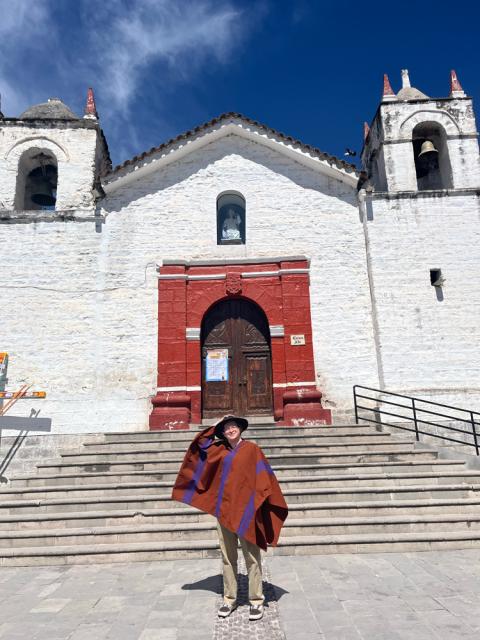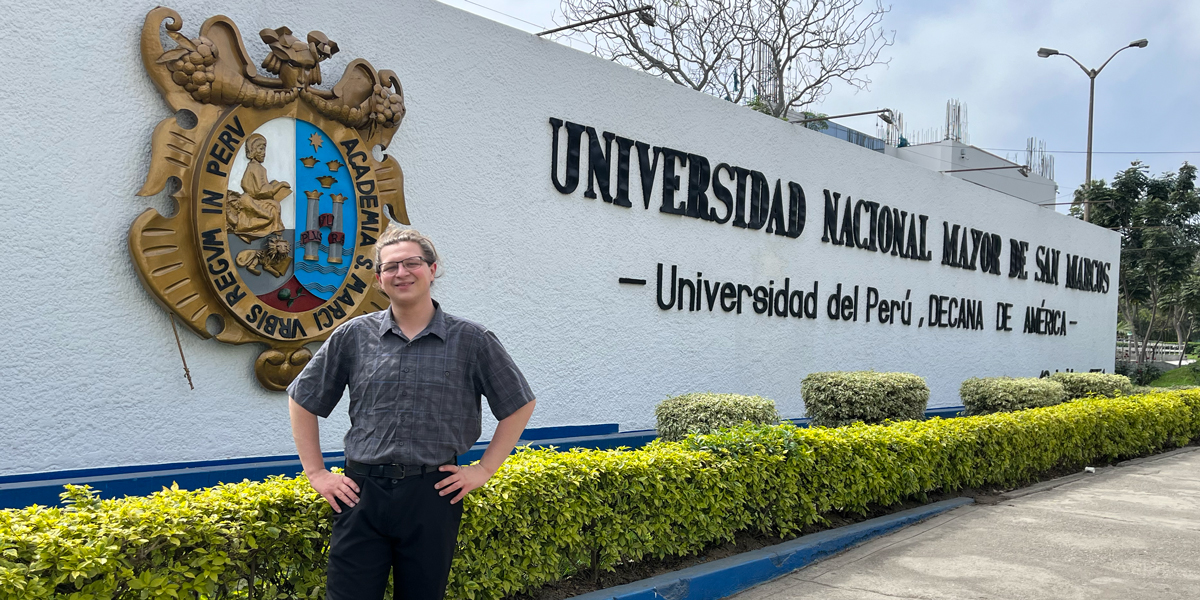Nikolas King had a unique experience while in Peru studying Quechua as a Foreign Language and Area Studies fellowship award recipient. For his two-month long fellowship, King resided in his private tutor’s home, located in the city of Lima. While there, he participated in immersive language lessons. His tutor is a native Quechua speaker who works in the field of anthropology.

King and his tutor talked mostly in Quechua on a regular basis. He would participate in classes right out of her home. Sometimes, his tutor would take him to different places to interact with smaller communities of Quechua speakers in Lima, the capital of Peru. This was especially helpful because he wasn't just learning how one person speaks the language, but multiple people. “While I think immersion isn’t necessarily essential to language learning, I wouldn’t have learned some of the things I did while in a classroom environment,” he said. These experiences helped him broaden his understanding of the language and made it easier to understand some dialects that he hadn’t encountered before.
King has always had a deep love for languages, and his time abroad became a once-in-a-lifetime opportunity to pursue that passion. His main goal of studying Quechua was to try and open dialogue with a chosen community in a respectful manner. “One of the ways to do that is speaking the language of the community,” he explained.
As a graduate student in The Ohio State University’s Department of Spanish and Portuguese, King has been conducting research which focused on how people talk about or remember violence. “There was a lot of discourse regarding how people from Indigenous communities in Peru, Argentina and Bolivia talk about these things in Spanish, but there is no discussion regarding the language of Quechua,” he explained. During his time abroad, King seized every opportunity to deepen his understanding of both the language and culture. His work aims to create more inclusive research that reflects the voices and perspectives of the communities he studies.
When asked what advice he would give to someone starting their fellowship program, King said, “establish a network of support.” This can be accomplished in a number of different ways, but the end goal is to avoid being completely isolated during a very new experience. “Never say no to new experiences,” he said. “Maybe at first glance they don’t seem like they’re the kinds of things that you would enjoy. However, there is a lot of value in being open, and experiencing things that you never would have before.”
